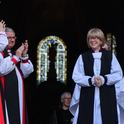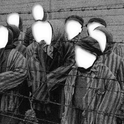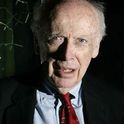I am the youngest of three sisters. At Passover every year, we would recline as best we could around the dining room table while our father led the Seder, telling the story of the deliverance of the children of Israel from slavery in Egypt to freedom in the Promised Land. As the youngest, my job was to ask the Four Questions (about why this night is unlike all others). It didn’t occur to me to ask whether the Exodus ever actually happened. By the time it did, I was old enough to think, “Whatever happened, the Jewish people exist because we tell this story every year. We are the people whose story this is.”
There were other stories, too, the ones that belonged to our family in particular. We are the family whose stories these are. One great-grandfather came to New York refusing to take any job that would not allow him to read the Talmud all day. He eventually became a reader in a cigar factory, and his sons, including my grandfather, became atheists. Another learned 16 languages and ran a steamship ticket business bringing over immigrants from southern and eastern Europe, until the racist Immigration Act of 1924 put a stop to all that. Our paternal grandmother had an Irene Castle bob, and our paternal grandfather had a boyfriend named Hugo Fuchs. According to the story, “Joe would never have married me if Hugo Fuchs hadn’t died.” Our maternal grandmother was brought from Odesa to south London as a baby in 1887, and, we were told, sang for Queen Victoria in the year of the diamond jubilee with a group of other London schoolgirls. Afterwards she ran home crying because she’d been expecting to see a queen, “and there was only a little old woman in a black dress!”.
Then there were the uncles and aunts and cousins, including Cousin Asher (aka Woo Woo the Clown) who ran away to the circus when he was 13, Great Uncle Jack, the celebrated Mayor of Flin Flon, and Great Uncle Siegfried, who joined the French Foreign Legion. We never met him, but he died in Los Angeles at a great age. He was “Sidney” by then. Running away was a theme among the young men in my mother’s family: they ran from the tsar, and from Hitler, and from fathers who wanted them to marry some cousin with thick ankles. They ran to escape death and to find a new life. Our mother was a romantic, and her stories showed it. Many of them turned out to be true, or mostly true. When I hear politicians fulminating about how many asylum seekers are boys and young men, I think of my family.
After my baptism, my eldest sister returned to the faith of her ancestors. Not of my ancestors: I claim the small Hungarian dandies of the Goodman branch, and the Canadian adventurers who kipped under the elephant cage and liked to eat frogs’ legs. She identifies with others: mythic Yiddish-speaking Jews straight out of Sholem Aleichem. It still came as a shock to run across our grandmother’s wedding picture on an internet page of recipes from Yiddish New York, with a story about the cinnamon buns that Bubbe would make for my sister as an after-school treat. “You’re kidding me!” said my other sister. “I know. Nana only visited us once a year, for about three days. She never spoke Yiddish. After-school treat indeed!”
“This is the bread of affliction, which our forefathers ate in the land of Egypt,” says the person presiding at the Passover Seder. “This is my body, which is given for you,” says the priest at the altar. Not my body, you understand, but Jesus’s; and not some ancient piece of petrified matzo with a bite taken out but this year’s, box fresh. By these actions of taking, breaking and eating, people remember something that they themselves didn’t see or hear. It’s called anamnesis, the making of a people through memory. An Israeli politician said recently that if the European Union recognised Palestine, Israel would make sure there was nothing left to recognise. Oh no, I thought, as long as Palestinians have the keys to their old houses, there will be something to recognise. How could anyone who’s ever sat through a Seder forget this? We make ourselves out of memories, real or mythic, and imagine our ancestors for ourselves.
From The Death of Klinghoffer, the beginning of the Chorus of Exiled Palestinians, I wrote in 1989:
My father’s house was razed
In nineteen forty-eight
When the Israelis passed
Over our street.
The house was built of stone
With a courtyard inside
Where, on a hot day, one
Could sit in shade
Under a tree, and have
A glass of something cool.
Coolness rose like a wave
From our pure well.













